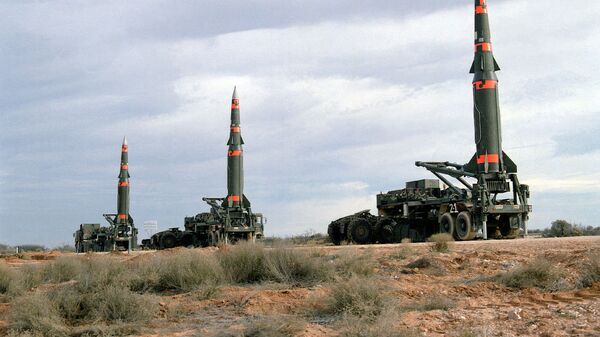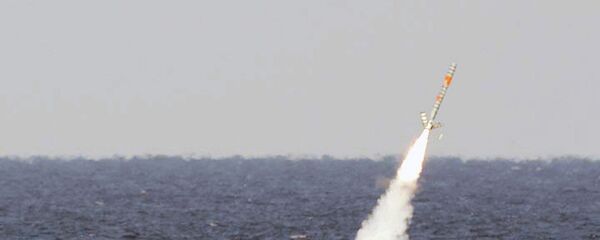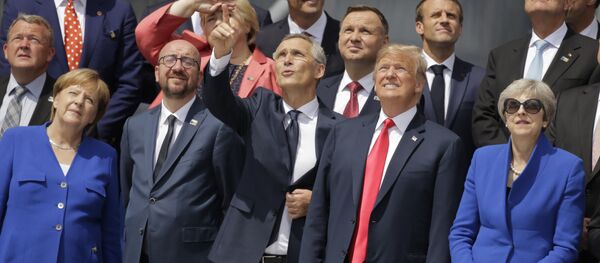The former top German military officer believes that there is still a chance to save the INF Treaty.
Sputnik: Mr Kujat, do you think the INF Treaty can be saved in any way?
Harald Kujat: It can be saved, but to begin with, it's first necessary to agree on measures of mutual control; to establish how justified are the United States' and Russia's mutual accusations. The Chancellor [of Germany] could make such a proposal. This would be relatively easy to implement by reactivating the on-site inspection agreement, which expired in May 2001; and also include in it the systems that Russia opposes. Then it would be possible to find out what the truth is.
READ MORE: INF to Collapse August 2 as Russia Unable to Save It — Russian Official
Sputnik: However, it seems that both sides have already accepted the fact that the INF Treaty will be terminated. The victim is Europe, but it does little to resist.
Harald Kujat: In principle, both parties — the United States and Russia — are interested in its termination. This, on the one hand, is due to the fact that the number of strategic nuclear systems has been dramatically reduced in accordance with the last remaining disarmament agreement — the New START Treaty. In 2021, it should be extended. Thus, both sides, of course, lose their strategic flexibility. So they can somehow manage without the INF. And for Europe, of course, it will be a disaster.
Harald Kujat: China for the United States is only a pretext. Its medium-range missiles pose no danger to the United States. The question is also this: If they want to include a third party in the INF Treaty, then is it necessary to terminate the deal? Or maybe it would be better to save it? After all, this treaty means that an entire category of weapons has disappeared — this is the "zero solution". And it is impossible to achieve more than zero, even if a third party joins the accord.
Sputnik: So why is everyone in Europe silent? Or is the threat rather abstract?
Harald Kujat: No, it is not abstract. This is due to the fact that the US wants to get rid of its obligations to its European allies. That's the key point. This is under the "America first" motto.
READ MORE: Moscow: INF Collapse Casts Shadow Over New START Treaty Extension
Sputnik: The "America first" pledge is also valid in NATO, where the US is the main payer. That's why they are now pushing European members, and especially Germany, to increase their defence spending to 2% of the GDP budget.
Harald Kujat: Well, I wouldn't dwell to the 2% figure. There are two questions here: first, is Germany in solidarity with its allies? That is, why did Estonia increase its military spending to 2%, while in Germany it's only 1%? Secondly, does the Bundeswehr really need this money to fulfil its tasks? And the answer is: Yes. Maybe it shouldn't necessarily be 2%, but it needs to be much more than now.
On both issues, Germany, has basically opposed its allies. Moreover, Germany has repeatedly promised NATO to achieve this goal. At the very least, one would expect the government to consider everything carefully before giving consent. There seems to be no one in the Office of the Chancellor who knows how to perform simple arithmetic.
Harald Kujat: You can always do without something. There can always be something new. Many often forget that relations between NATO and Russia were once good. Russia had its troops stationed in Kosovo under NATO command. In addition, NATO and Russia have successfully cooperated, for example, in the search and rescue operation for the Kursk submarine.
I could continue this list. There was — and still exists on paper — a so-called strategic partnership between NATO and Russia. The crucial thing would be now, before thinking about new structures is to reactivate the existing ones.
READ MORE: US Lawmakers Urge More Pressure, Full CAATSA Sanctions Against Russia, Iran
Sputnik: How do you assess the current relationship between the US and Russia? After all, for example, the reception of US Secretary of State Pompeo this week in Sochi was quite friendly.
Harald Kujat: You always have to distinguish between diplomatic protocol and what really matters in substance. I think the United States is also well aware that they need close cooperation with Russia and the elimination of the causes that led to the conflict, no less than Russia.
There is also a common interest in resolving the conflict in Syria and stability in the Middle East. So there are points of contact. Both parties just need to understand this. I think Russia understands this. Perhaps, one day, the United States will understand it.
Sputnik: At least Russia seems to have slid down from first place to fourth place on the list of "state enemies" of the United States. Do you think there will be war with Iran?
Harald Kujat: I don't think so. Of course, the Americans put pressure on Iran after pulling out of the "nuclear deal". But Americans will also see that they are isolated and all alone in this world, and realise that their security also depends on having allies and partners.
READ MORE: Trump 'Would Be More Than Happy' to Kill New START — Think Tank
Sputnik: Speaking of allies: What relations should Germany have with Russia?
Harald Kujat: It is important that we maintain a dialogue with Russia. In foreign policy, this means that Germany needs to decide in which areas it should work closely with Russia and how this can be done. Of course, it doesn't help to always blame each other.
We must stop shifting the blame and try to find a way that suits the interests of both sides. In essence, it is a question of restoring mutual trust, and this is possible only if we consider each other's interests.
Views and opinions expressed in the article are those of Harald Kujat and do not necessarily reflect those of Sputnik.




